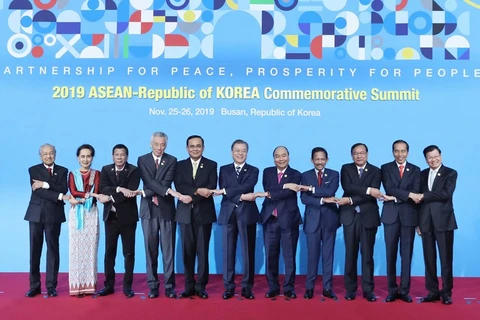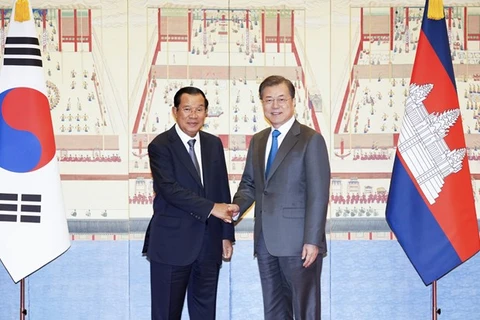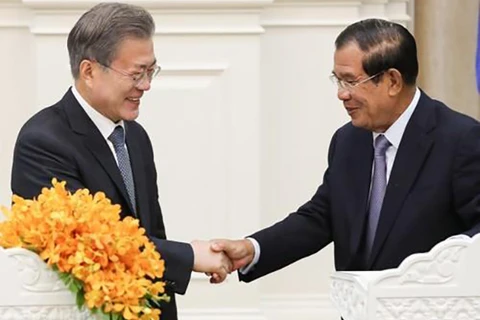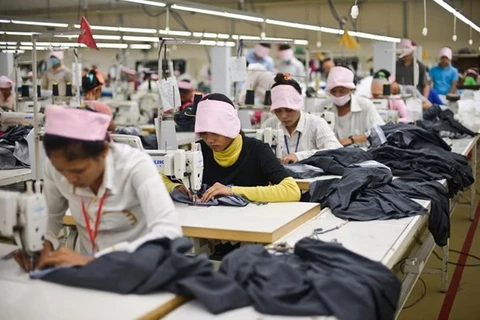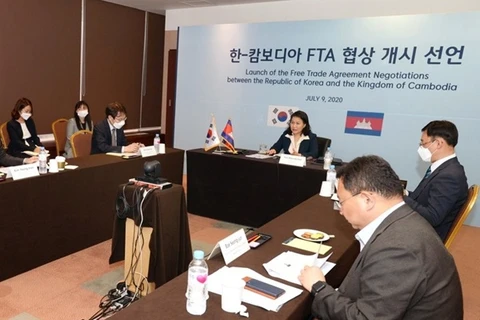Hanoi (VNA) – Cambodia and the Republic of Korea (RoK) launched the second round of negotiations for a bilateral free trade agreement (FTA) on August 31 as the RoK works to expand its export portfolio to cushion the economic fallout from the COVID-19 pandemic.
According to the Ministry of Trade, Industry and Energy of the RoK, the four-day virtual meeting aims to set more details on the envisioned FTA.
The two sides will also exchange opinions on setting the scope of products, as well as other measures to enhance their bilateral economic ties.
The two countries held the first round of negotiations in late July. The session came more than a year after Cambodian Prime Minister Hun Sen proposed a bilateral free trade pact during his meeting with RoK President Moon Jae-in in Phnom Penh in March 2019.
According to the Korean International Trade Association (KITA), the trade volume between the two countries reached an all-time high of 1 billion USD in 2019, up 6 percent against the previous year, of which 697 million USD was from the RoK’s shipments to the Southeast Asian nation.
When the pact is signed, Cambodia will be added to the RoK's list of FTA partners in Southeast Asia, which currently covers Vietnam and Singapore./.
VNA

